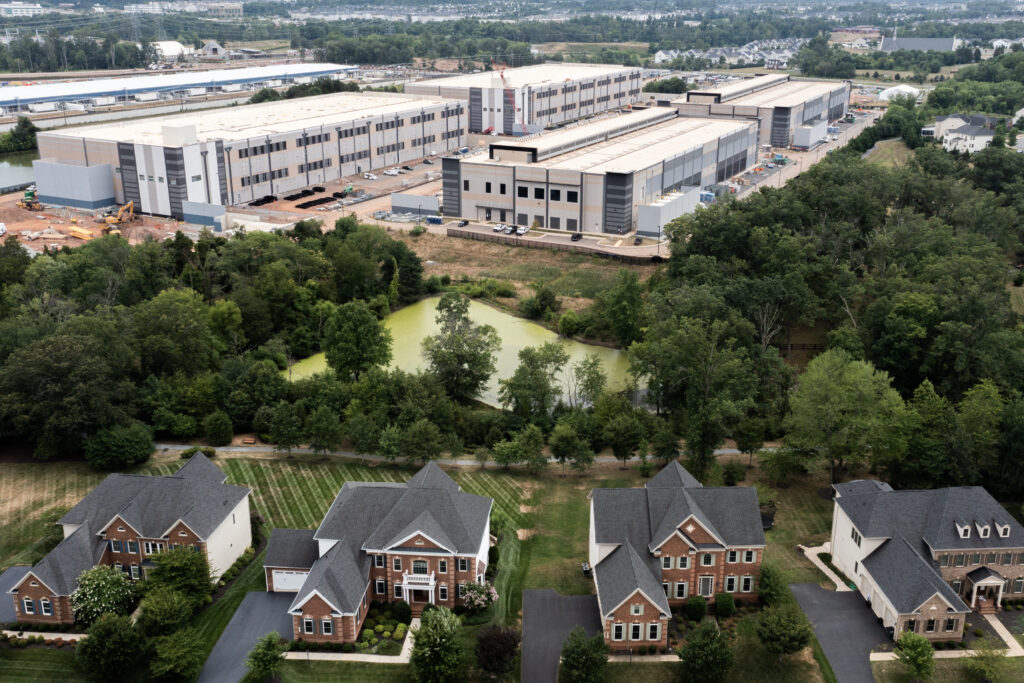If this month is any indication, artificial intelligence has disrupted yet another part of American life: electoral politics. Nowhere was this more evident than in Georgia where two Republican incumbents lost their seats on the Public Service Commission, the regulatory agency responsible for utility pricing. An AI data center construction boom across the state has caused consumers’ electricity costs to surge, leading voters to elect Democrats to state-level office for the first time in two decades.
It offers proof that even with rapid technological advances and increasingly nationalized issues, our democracy’s governing algorithm remains largely the same: all politics is local.
The evidence is everywhere. In Virginia, the “data center capital of the world,” Democratic Gov.-elect Abigail Spanberger flipped the governorship by focusing on affordability and making rising energy costs a pillar of her campaign, winning majorities of voters in every income category. She also erased the diploma divide, winning college-educated voters who lean Democratic and noncollege voters who have shifted Republican. The Democratic wave continued in New Jersey where nearly 90 percent of voters said electricity costs are a problem, and Gov.-elect Mikie Sherrill ran on freezing monthly bills. The result? The party’s margin of victory improved by 11 points over 2021’s gubernatorial election. And last November, Georgians in Columbia County outside Augusta backed Donald Trump by 25 points but supported the two new Democratic commissioners elected this month after Republican incumbents approved six electricity rate increases in the last two years.
Across the country, a majority of Americans report rising prices, and less than half think their states do a good job of regulating utilities. The parties’ views on government regulation differ dramatically, with supermajorities of Republicans believing it does more harm than good, and Democrats saying it benefits the public. But recent statewide elections suggest that voters are more willing to sideline their partisan identity in exchange for lower prices.
If there’s any deep learning from this, it’s that prioritizing local issues over national ones can help break partisanship’s stranglehold on our representative democracy.
Political research finds that voters generally support their preferred party’s policy choices on issues with little public attention, but their partisan loyalty frays on issues that command lots of public attention when representatives take unpopular positions. In one study, two political scientists studied ratemaking in Arizona, which has elected members to its public utilities commission for more than a century. They showed that elections helped keep commissioners in check, encouraging them to “respond to voters and set pro-consumer electricity prices.” But democracy isn’t foolproof, especially when state or local party competition is weak, and incumbents don’t feel threatened. In these instances, voters can punish them — and they’ll cross party lines to do it.
In this way, bad news locally could be good news for the country. Our domestic affairs have become more polarized and nationalized, and voters’ identities have become so intertwined with party preference that policy differences are perceived as personal attacks. This calcifies our government, makes compromise elusive and frames debate as a battle between good and evil. The result is a democracy that’s reduced to abstraction — until the cost of living shocks the system. Public utility regulators are often electoral afterthoughts, but monthly bills are top of mind for most Americans; economic strain raises the salience of the local over the national. Policy over party.
This phenomenon isn’t new, and both parties are susceptible. For example, a century ago, Black Americans relocating to the North changed states’ electoral balance of power. Though the Republican Party was more progressive on civil rights, by the 1930s, the party’s Northern economic conservatives began to balk at the regulatory compliance burden associated with sharing political and economic power. Over the following two decades, those local politics helped shift the party’s national platform away from federal oversight of civil rights and toward a stronger anti-regulation position.
More recently, costly energy regulations supported by Democrats alienated key voters. In 2009, Republican Chris Christie was elected governor in New Jersey partly on his promise to alleviate regulatory burdens, including environmental ones, that impacted small business and consumer costs. In 2014, West Virginian voters unhappy with costly regulations on public utilities and coal mines flipped the state legislature to Republican control for the first time in 83 years. And now, after taking unpopular and costly positions on tariffs that have hurt Republicans in local elections — and hoping to distract from scandal — President Donald Trump’s energy has changed: “We are the ones that have done a great job on affordability, not the Democrats.”
Next year’s midterm and state elections will provide the best evidence of whether the attempt to nationalize affordability will strengthen partisan loyalty or further erode it. If the election of two Democratic commissioners to state-level office in Georgia is any indication, the issue will remain a charged one. And if history is any guide, even AI and data centers can’t make the nation’s age-old governing algorithm obsolete.
The post Soaring electricity bills help flip state elections
appeared first on Washington Post.




